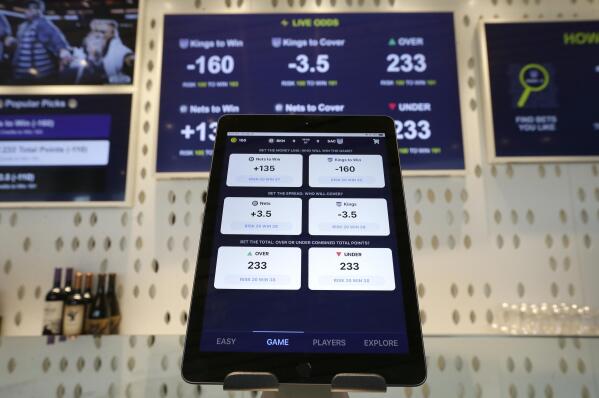
By Megan Sayles,
AFRO Business Writer,
[email protected]
After former governor Larry Hogan signed HB0940, sports betting became legal in Maryland in 2021. Since then, retail and mobile sportsbooks have contributed more than $25 million in tax revenue to the state, and Marylanders have wagered more than $2.8 billion, according to revenue reports from the Maryland Lottery and Gaming Control Agency (MLGCA).
This past June, sports betting generated $2.8 million alone.
“The state of Maryland’s share of sports wagering revenue goes to the Blueprint for Maryland’s Future, a comprehensive plan to increase public education funding. We have projected that when the sports wagering market is fully operational, it will contribute $25 million to $30 million per year to the blueprint,” said a spokesperson for the MLGCA. “There are still a number of mobile operators and retail locations that are planning to launch.”
The Blueprint for Maryland’s Future, legislation passed in 2021, is aimed at transforming the state’s public education system by increasing annual education funding by more than $3.8 billion over the next decade.
Anticipated fiscal enhancements include beefing up funding for early childhood education, increasing the pool of diverse, high-quality teachers and providing more college and career readiness opportunities to students.
Currently, 10 retail sportsbook facilities and 11 mobile sportsbooks operate in Maryland. They include big names like FanDuel and BetMGM and their revenues are taxed at 15 percent.
While some have concerns about government-sanctioned sports betting contributing to problem gambling, budget analysts point to the extra funding and tax revenue that can be generated from the practice. Legalization has also created jobs in the sports betting industry, although the MLGCA said it’s difficult to determine how many.
“To provide some perspective, public education benefits quite substantially from casino gaming. Revenue from slot machines and table games at Maryland’s six casinos contributed more than $832 million to the Maryland Education Trust Fund in fiscal year 2022,” said a spokesperson for the MLGCA. “Since the inception of Maryalnd’s casino gaming program in September 2010, the casinos have generated more than $5.2 billion for the Education Trust Fund. Sports wagering has never been expected to generate anywhere near those levels, but over time, it will provide an ongoing contribution to public education.”
According to a recent report from the Maryland Center of Excellence on Problem Gambling, African Americans and Hispanics have a higher risk for problem gambling. In 2020, 10.7 percent of African Americans had a gambling disorder compared to 5.6 percent of their White counterparts.
Les Bernal, national director of Stop Predatory Gambling, said he considers state-sanctioned gambling to be a form of institutionalized racism. His organization exists to protect consumers from exploitative gambling operators.
“Not only are people losing huge sums of money and experiencing life-changing financial losses, but a disproportionate amount of this money is coming from Black and Brown folks,” said Bernal. “Low-income people play this the most and most low-income people in this country are Black and Brown folks.”
Bernal added that gambling companies target low-income neighborhoods, along with young adults, with advertisements.
The MLGCA said it strongly encourages and supports responsible play, and that there are several provisions in place for problem gambling.
“Maryland’s six casinos are required to pay annual assessments of $425 per slot machine and $500 per table game to the state’s Problem Gambling Fund. In fiscal year 2022, these assessments totaled more than $4.4 million,” said a spokesperson for the MLGCA. “In addition, expired sports wagering prizes are contributed to the Problem Gambling Fund.”
The Maryland Center of Excellence on Problem Gambling uses the money to provide disordered gamblers with assessment and treatment services from licensed counselors at no cost.
Bernal said he does not think these efforts are enough.
“Gambling addiction has the highest rate of suicide of any addiction,” said Bernal. “If you get addicted, you lie to so many people and it’s embarrassing because the industry frames it as though the product is not known to be addictive.”
He expects that Maryland’s mobile sports betting will attract more first-time gamblers and young adults, putting them at risk for problem gambling.
“You don’t even have to physically go into the casino anymore. If you’re somebody who’s hesitant because you didn’t want to travel or be seen in a casino, now you can sit at home, and no one would know that you’re doing it,” said Bernal. “You can hide your addiction, which makes it even more dangerous.”
Megan Sayles is a Report for America Corps member.
Related Articles: